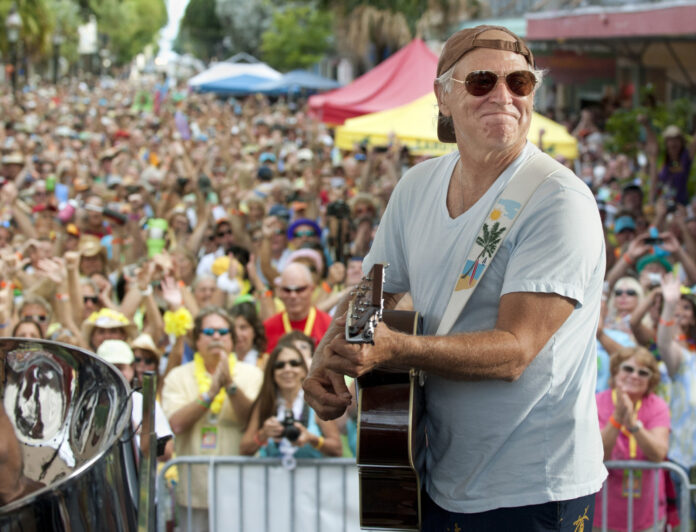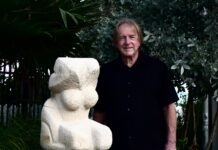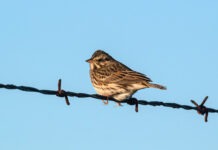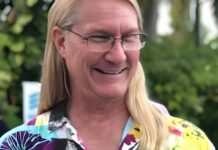
Jimmy Buffett, the legendary songwriter who tapped into his 1970s Key West experience to create his own genre of laid-back island rock and roll and build a fortune with his “Margaritaville” brand, passed away Friday night at age 76, “surrounded by his family, friends, music and dogs,” his representatives posted on his website and official social media pages.
“He lived his life like a song till the very last breath and will be missed beyond measure by so many,” the post said.
Buffett had been struggling for four years with Merkel cell skin cancer, according to the obituary on the singer’s website.
“He continued to perform during treatment, playing his last show, a surprise appearance in Rhode Island, in early July,” the obituary said.
The city of Key West lowered its flags at half-staff as a tribute to Buffett and played his songs outside City Hall. Locals organized a second-line procession that drew thousands to Duval Street on Monday, Sept. 1, which was Labor Day. It started, fittingly, at 5 p.m.
The second-line tribute was called “It’s 5 o’clock in Key West,” a nod to the the 2003 song “It’s 5 o’clock Somewhere,” that Buffett did with Alan Jackson, and was organized by Key West business owner Paul Menta after the world learned over the holiday weekend Buffett had died.
The second line stopped at the Margaritaville Restaurant in the 500 block of Duval. There, Keys-based musician Howard Livingston led the crowd into a rendition of Buffett’s signature song, “Margaritaville,” a 1970s song about booze in the blender and wondering if there’s a woman to blame for the narrator’s “wasting away” in what’s considered a beach town paradise.
Buffett’s talents allowed generations of fans to live vicariously through his tales of sailing the islands of the Caribbean, late nights, hangover mornings, romance and living expectantly.
in 2017 said, “If there’s a heaven for me, I’m sure it has a beach attached to it,” on an Instagram post from Folly Beach, South Carolina.
Buffett worked his way from playing bars in Key West to arena tours over a career that spanned more than 50 years. He has more than 350 songs to his credit.
Buffett was also an advocate for protecting the Everglades and Florida’s waterways, and served as a board member of the Everglades Foundation.
“His talent and adoration for the Everglades and Florida’s way of life will remain unmatched,” the foundation said in a statement Saturday. “Our thoughts are with the Buffett family, and we will continue to focus on restoring the flow of clean freshwater through the Everglades and into Florida Bay as Jimmy so deeply valued.”
Buffett scored his first hit with the indelible “Margaritaville,” which Buffett said he started by jotting down lyrics on a cocktail napkin while in Austin, Texas, and later finished the song while stuck in a traffic jam on the Seven Mile Bridge, on his way to Key West.
He played “Margaritaville” for the first time in a little bar in Key West when it was “probably six hours old,” he later said.
In April, “Margaritaville” was inducted into the National Recording Registry of the Library of Congress.
The song resonates in American culture, Buffett told the Library, because “people were looking for a song to make them feel good and be happy.”
Buffett said, “You’re lucky enough at some point to put your thumb on the pulse of something that people can connect with,” he said. “It’s an amazing and lucky thing to happen to you, and that happened with ‘Margaritaville.’”
Buffett and his Coral Reefer Band thrilled Key West locals in February by launching his “Second Wind” tour by playing four concerts on the little island. When his two shows at the Coffee Butler Amphitheater quickly sold out online, Buffett’s team added two more at the Key West Theater. But to get the theater tickets, people had to line up outside the box office on Eaton Street.
They did, turning the long wait into a block party, sharing drinks and laughs with each other.
Onstage at the Key West Theater on Feb. 4, Buffett and his band played the songs from his first Key West-inspired record, A White Sport Coat And A Pink Crustacean, from 1973. He broke into the party anthems—Fins, Volcano, and Margaritaville for the second act.
Buffett also name checked Key West legends, starting with Coffee Butler, who let a young Buffett open for him at local bars, and he dedicated the show to his friend Tom Corcoran, the Florida writer who died in January.
Buffett strummed the opening to “A Pirate Looks at 40,” released in 1974.
“It’s so cool singing this song in Key West,” he said mid-verse, to cheers.
In a 2018 interview with Keys Weekly, Buffett traced his career to Jerry Jeff Walker and his girlfriend, Teresa “Murphy” Sadler taking him to Key West.
“They took me to the Chart Room, and Jerry Jeff was already a force of nature in Key West in those days,” Buffett said. “That was my first time, and they kind of left me there.”
After a few days of playing downtown, Buffett returned to Miami, but the island stayed with him.
“I loved it so much. After I did a few gigs back in Miami, I thought, I’m going back to Key West. I had odd jobs and could play the Chart Room.”
During the 2018 interview with Keys Weekly, Buffett also responded to the idea of whether he was responsible for the commercialized Key West of today.
“There’s a lot of people I know from those days who still live in the past,” Buffett said. “Because it was a wide-open town, still a Navy town to a degree, and it was also a primary location for the marijuana business. It was very casual, and it had that kind of pirate mentality.”
“Everyone has their version of Key West,” Buffett said. “I still smell black beans and chicken cooking when I’m riding my bike around. It’s much more gentrified, but it still has that authenticity. I relish the past, but I don’t live in it.”

















